Exclusive! Ronan Parke: ‘I’ve always identified as gay – and I’ve always been proud to say it’
Eight years after reaching the final of 'Britain's Got Talent', 20-year-old Ronan Parke is ready to reclaim his public identity.
By Will Stroude
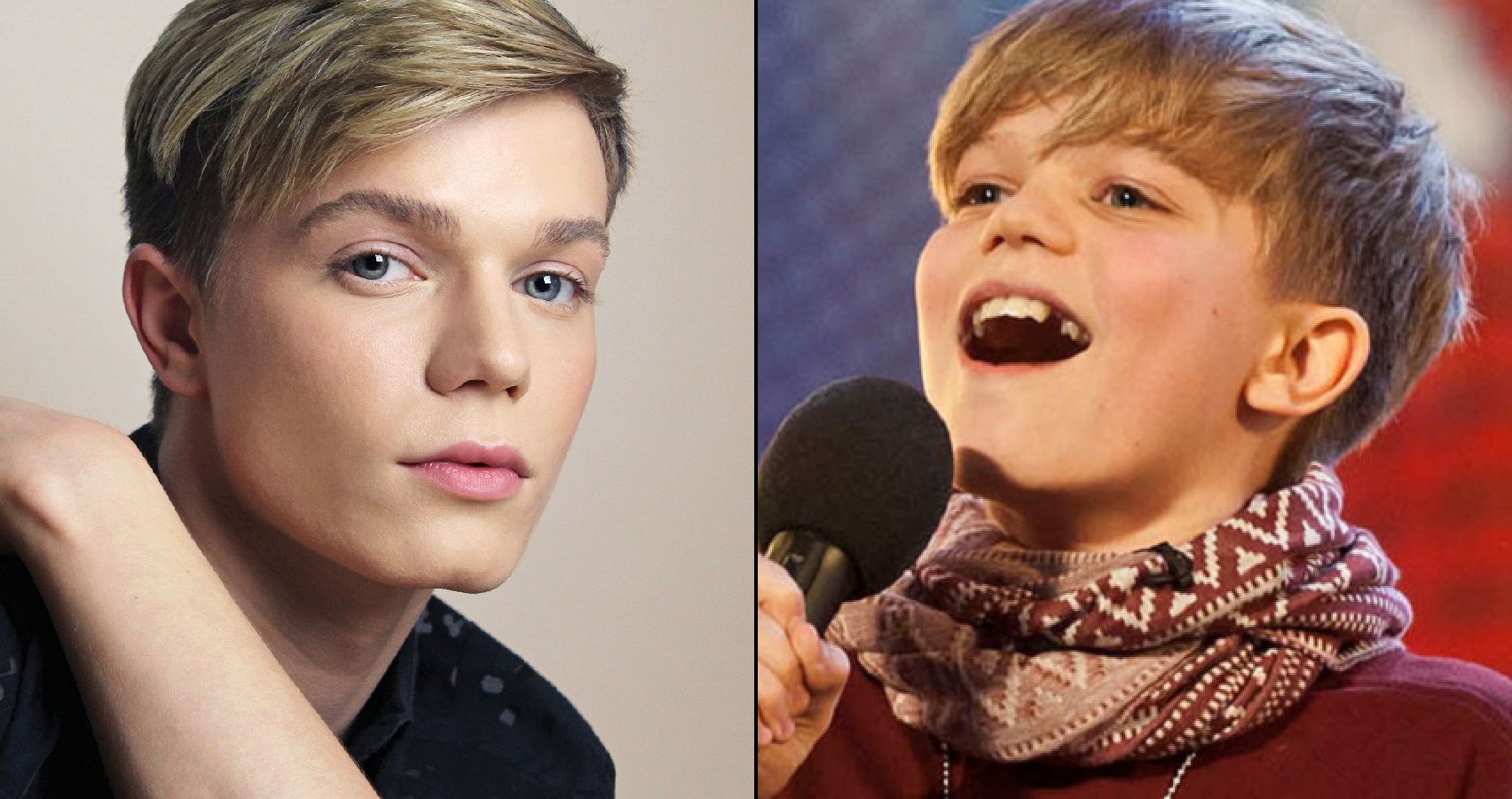
Words: Will Stroude
Ronan Parke has always known who he was. That’s one thing the 20-year-old singer and former Britain’s Got Talent finalist wants to make clear when Attitude meets him on London’s South Bank for an interview that for him has been eight years in the making.
Born in a small village in Norfolk, the carpenter’s son knew he was different from a young age, with a natural exuberance, talent for singing and headstrong manner that eventually led to him submitting an application for Brintain’s Got Talent in 2011 at the age of just 12.
Overnight fame followed, as the young schoolboy blew away judges Simon Cowell, Amada Holden and Michael McIntyre with a performance of ‘Feeling Good’ that showcased a voice with power well beyond his years.
Ronan’s talent would see him ride a wave of publicity all the way the final, where he eventually finished as runner-up to Scottish singer Jai McDowell. He soon proved himself the series’ real winner, however; signing a lucrative joint contract with Sony Music and Syco and releasing his self-titled debut album just six months after his audition had been broadcast.
Such a rapid rise in the then still-emerging age of social media came at a cost, however: abusive online comments, often homophobic in tone, came in in their hundreds, as a pre-teen Ronan was confronted with an ugly prejudice his supportive parents had previously helped shield him from.
Waves of bigoted language from online trolls instilled a newfound fear in a boy who’d first casually discussed his sexuality with his family in front of the TV years before. Meanwhille, music industry execs were also frantically working to build a closet around a child who’d never been in one, as the adults in charge insisted that the price Ronan would pay for being himself would be his career.
For the first time in his life, Ronan couldn’t be that care-free boy who never once thought about monitoring his language and body movements. And when the ride came to an end just a year later, Ronan was left back at school, without a label, and an understandable anger and bitterness about the personal price he’d paid for doing what he loved.
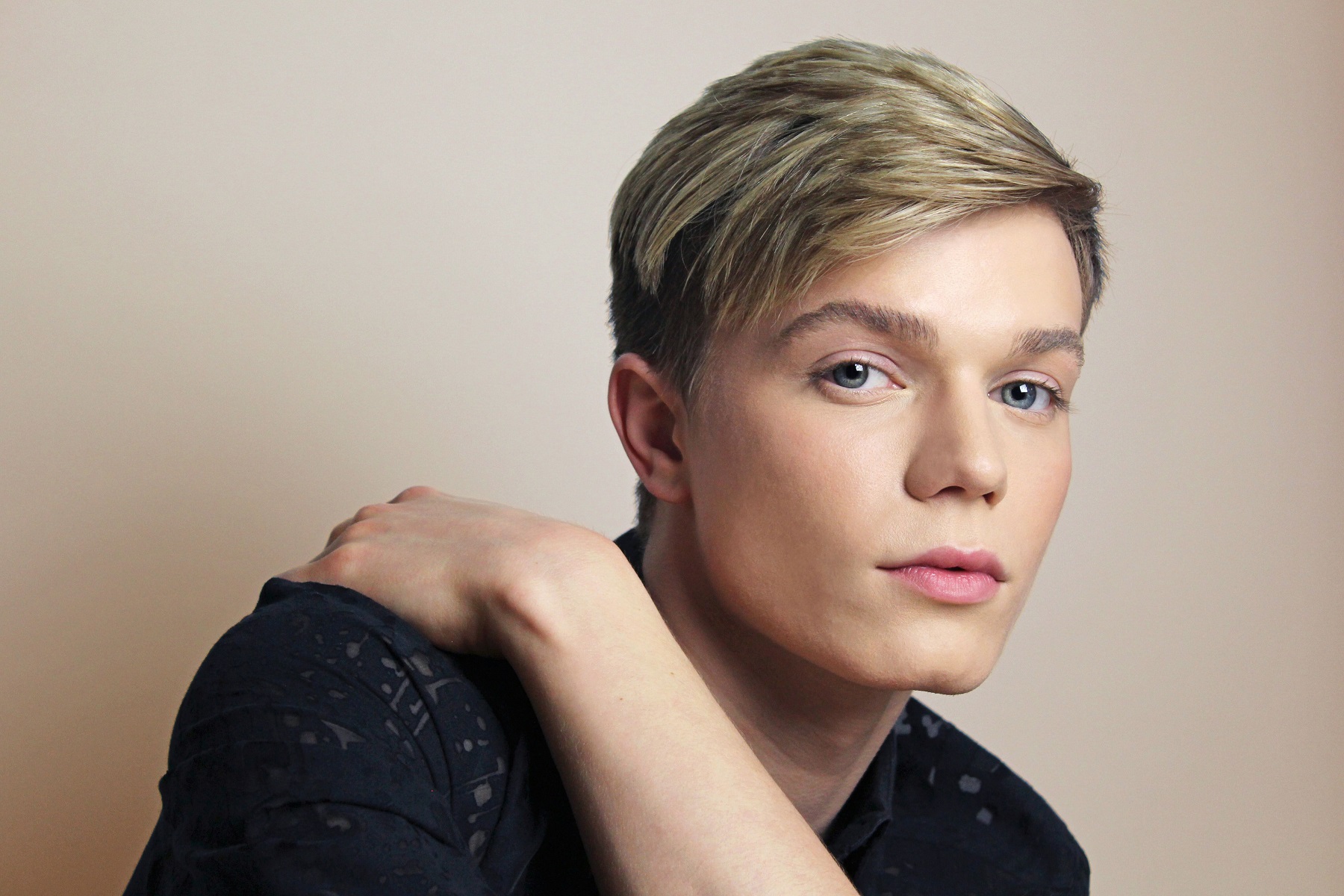
After spending the his teenage years in the relative normalcy, the now-20-year-old stepped back into the public consciousness at the end of last year with his second studio album – or, as far as he’s concerned, first of a brand new chapter.
Of course, there was just one thing missing: namely, reclaiming the identity that the trolls and men in suits stripped of him when he first stepped out on that audition stage eight years ago…
All these years on from Britain’s Got Talent, how do you look back on that period of your life?
I look back at it in different ways. It was mostly a positive experience, but there were certain things that happened when I was young that I could look back and say ‘Oh I was too young to do that’. Being on social media was difficult. I was 12 and people were saying this really negative stuff, and it was always about sexuality, always. I’d never spoken about it – I was really young, there was no need to. But it was nearly always about that and that was difficult to deal with. And the industry stuff: I parted ways with companies I was working with and because I was so young I didn’t see them as business relationships, I always looked at them as friendships. I was so young and naive, I was like ‘These are my friends, they really care about me.’ I wasn’t ready when it ended to not hear from people again. That was difficult, but as I say, I learnt from everything.
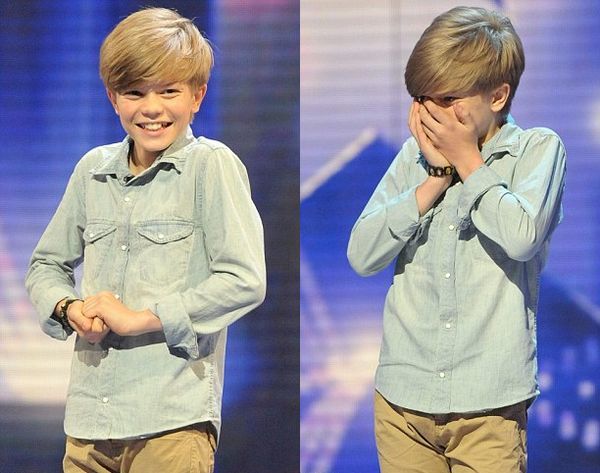
What were the comments like?
Well as I said the majority of stuff was all about sexuality. I always knew who I was from a young age and was very proud of it: everybody around me always knew, my family know; I never had to come out to anyone, ever. I never had to say to anyone because everyone’s always known. And I never had any negativity about it until I went on a big TV show and people’s opinions came into it. It was hard to accept because it was something so personal that I’ve always been very happy and proud of, [and] it made me like ‘Oh, what do I do?’ Then people who I was working with, they didn’t want me to talk about my sexuality. They were like ‘It’s not the time’. Because I had lots of young female fans, they didn’t want to jeopardise my career. But I can’t remember a time when I wasn’t proud of who I was, ever.
So was ‘gay’ a label you already identified with when you were young?
Yeah. I remember trying to come out to my parents: I was young – I can’t remember how old I was, around 7 or 8 – and I went downstairs to the lounge and stood in front of the TV and got the remote and went ‘Mummy, daddy, I have something to tell you!’ All dramatic [laughs] And they just went ‘Yeah, yeah, we know, you’re gay’, and they just got the remote and unmuted the TV! I was like [dramatic gasp], ‘What?! But they just always knew. And after that, I just never had to [come out] to my friends. But I’ve always identified as a gay man and I’ve always been very proud to say it.
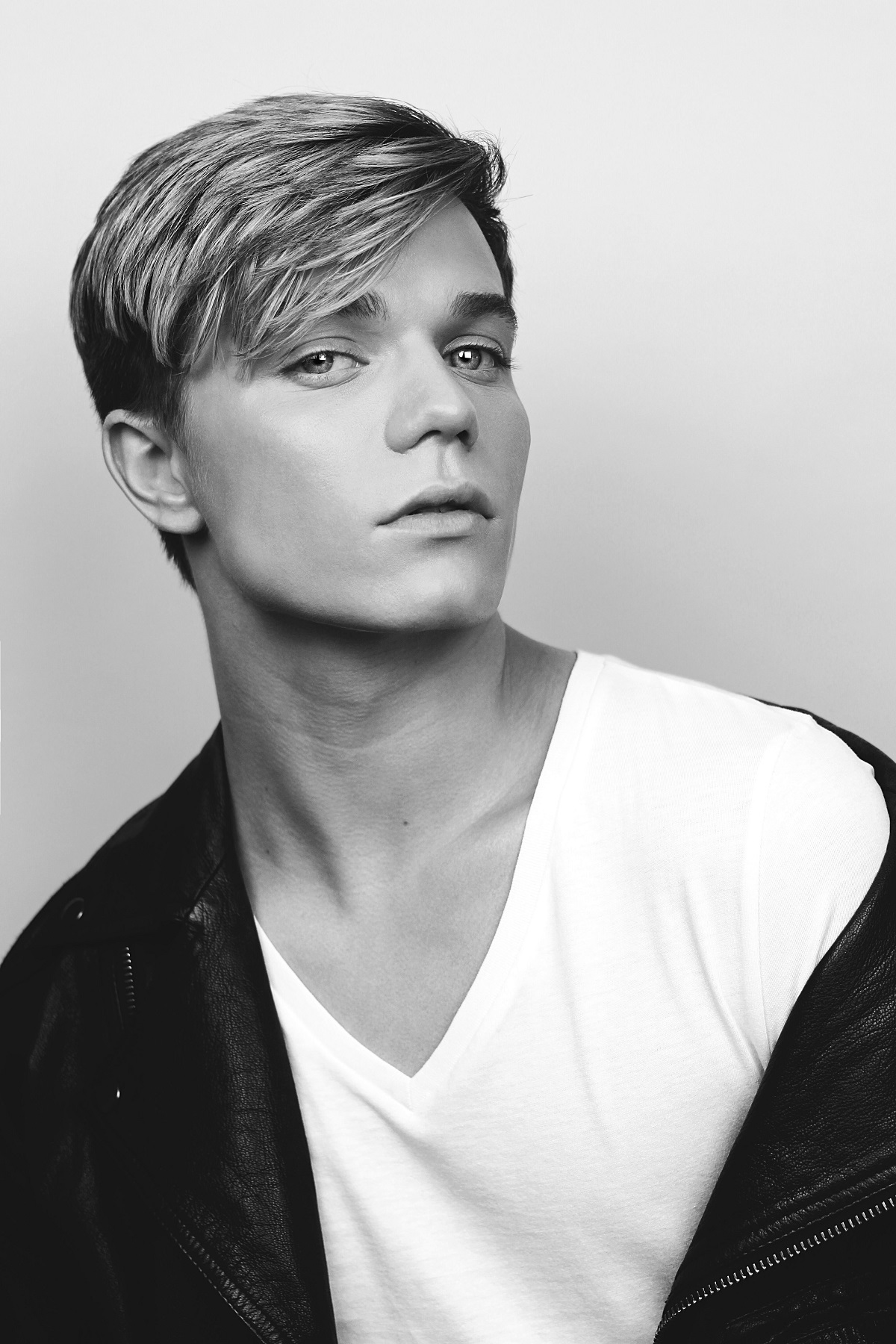
It’s kind of incredible that you’d not only have the self-awareness at that age but also the wherewithal to be so open and honest about it.
I think my family had a lot to do with it. Whatever I wanted it was like ‘Yeah of course’. If you want to wear heels, wear some heels, if you want to buy a Barbie, go buy some Barbies. I always knew I wasn’t like my brother: I didn’t like football and racing cars, I always knew there was something [unique] about me. And being young, I was still proud of it. When I was turning five I was jumping around on the trampoline in a pink tutu and one of my mum’s friends made a comment and my mum kicked them out. She was like ‘No, that’s who he is, he’s so happy being himself’. My family always drilled it into me that I always should be proud of who I am – it was never an issue until I went on the show and people started using it as a negative against me.
Is there any abuse that still sticks out in your mind now?
It was offensive words, things like ‘faggot’ and ‘queer’, and just saying it in such a negative way. I’m like, ‘What is wrong with these people, I’m 12 years old?’ For all they know even I didn’t know who I was. I did, but I may not have.
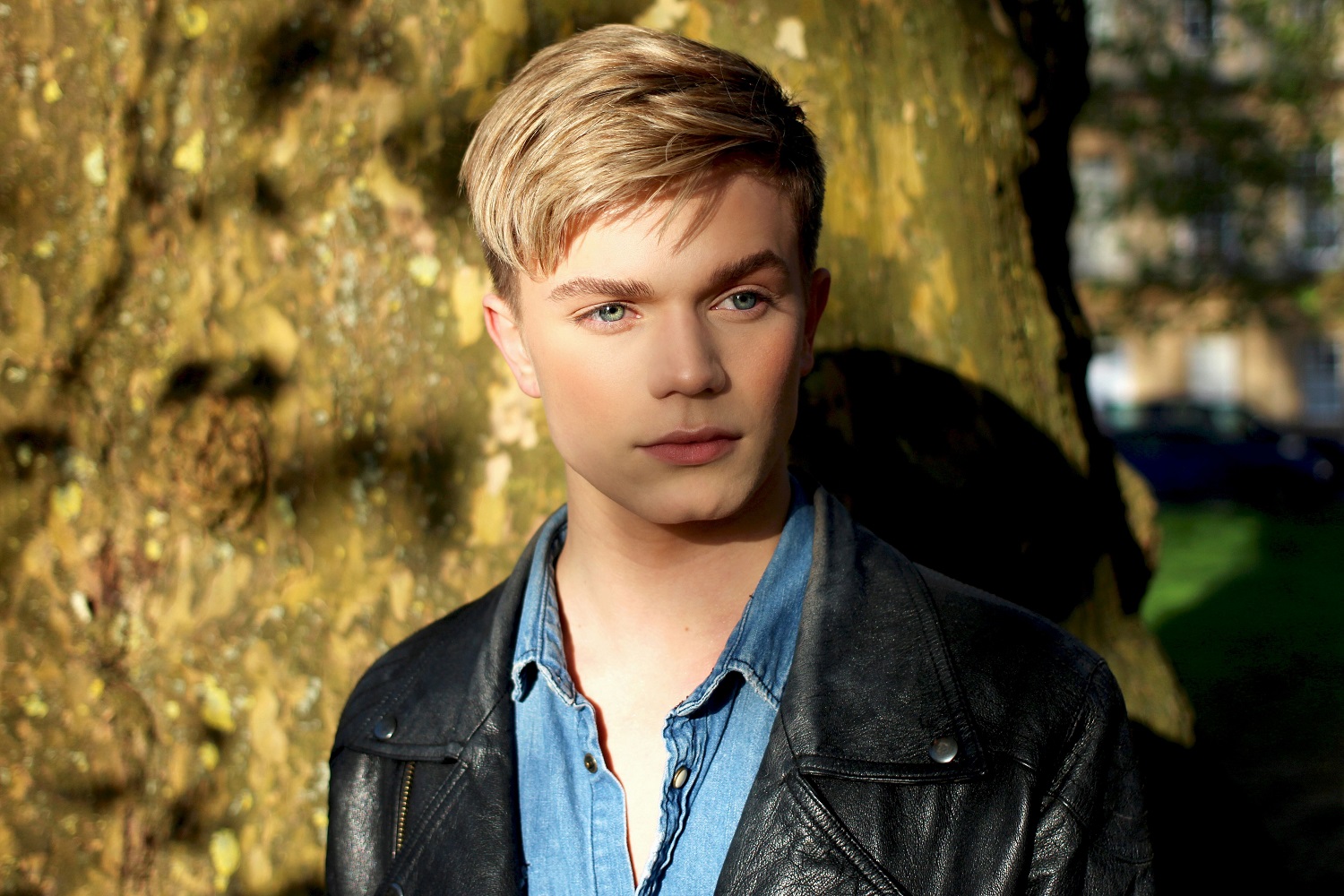
I think for a lot of people, if they’re called gay from a young age it can sometimes make it harder to discuss their sexuality, because they almost don’t want to prove those bullies ‘right’. After being so open before, did it make you defensive about talking about your sexuality?
I think it was a defence thing, like ‘You think you can label me? Well I’m not going to label myself then’. I think I did have that. I remember when I was 12 and I was doing press training – this was nothing to do with Britain’s Got Talent, this was after – and I was sitting there crossing my legs and they were like ‘Don’t cross your legs in interviews.’ There were things they didn’t want me to do and then I realised ‘I’m not being myself’. I’d be in interview sitting like this [crosses legs] and now I’m like this [puts legs straight down on the floor]. It was hard because there so many people saying these things, and making me feel like I was wrong to be myself.
Who was that pressure coming from? Your label? Your management?
That was just a press trainer getting you ready for interviews. My mum spoke to them afterwards and was like ‘That’s so inappropriate’.
It’s so sad this sense of this self-consciousness was completely forced upon you.
Yeah, after I moved on with different management I did a song called ‘Move’ and it was all about dancing in the club with a girl, and it just wasn’t me. But because all of these different things had happened I was like ‘Well this is how I have to be in order to be successful. I can’t speak about who I am properly. There has to be ‘Ronan Parke the brand’ and ‘Ronan Parke the person’.
Coming out publicly must have been worked up into this huge hurdle in your mind?
I think because I had all these young fans I thought ‘Am I gonna lose my fans if I talk about it?’ And it was stupid to think like that but I thought like that, because other people had told me that’s what would happen. Even talking to you now, I’ve never spoken so openly, and it feels like a weight [off]. I’m like ‘Why haven’t I don’t this earlier?’
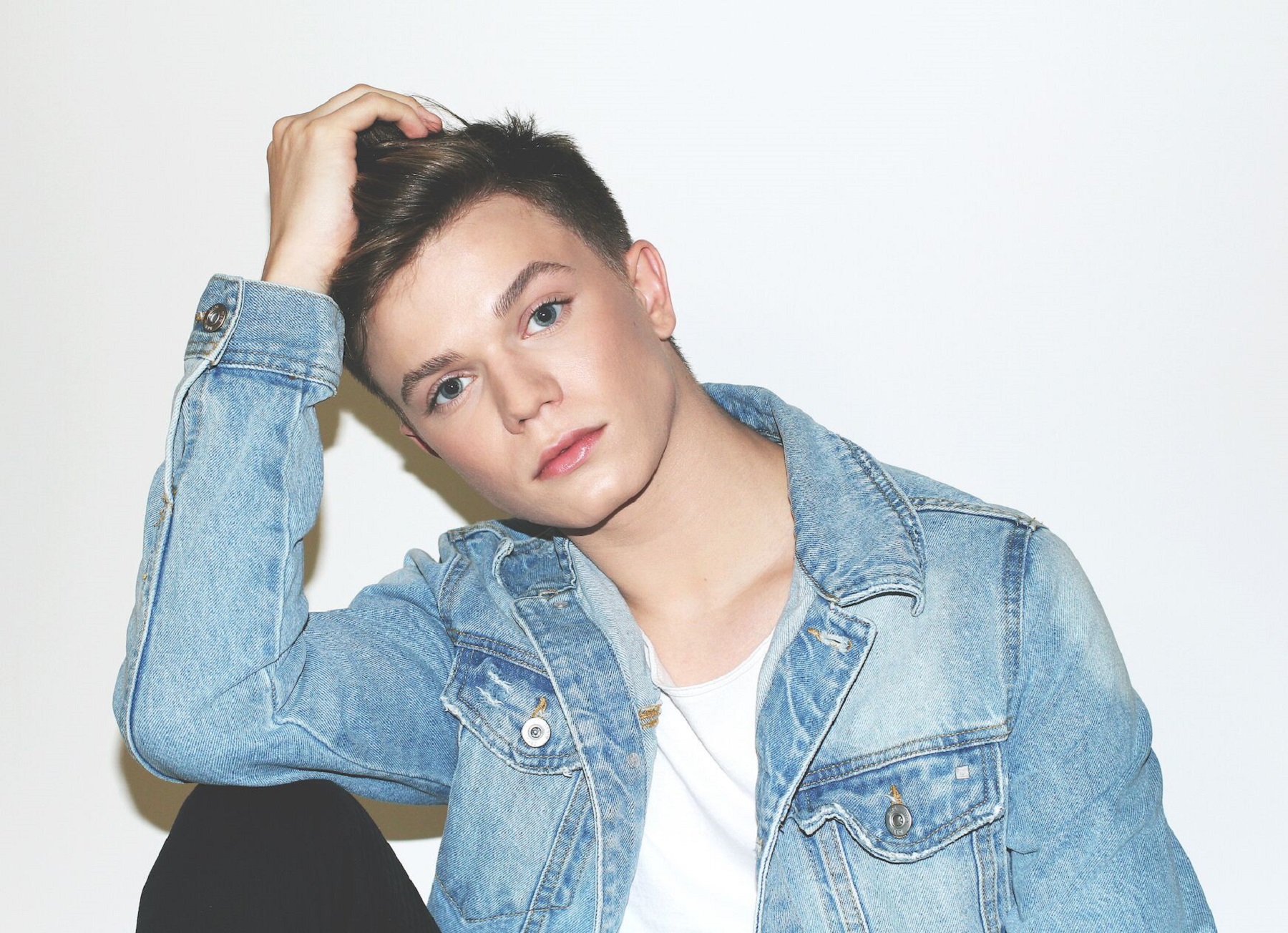
What was the turning point?
I’m 20 now, and moving to London was a huge part of it because I got to explore the community more. I didn’t know any other gay people where I was from. It was nothing I was trying to hide but I’d get comments from people like ‘Are you ashamed talking about it?’ The word ashamed really ticked me off, because that’s not the case. I would never want a young person to think I was ashamed or that it’s wrong to talk about it. I found it hard knowing I’d not spoken about it; it felt like there was an elephant in the room. I mean everybody knew, it’s not a big shock, but it felt like I wasn’t talking about the obvious. And there was no reason why I wasn’t. That was the point where I was like ‘Ok I need to talk about it’.
So much has changed for LGBT artists since 2011 when you were on BGT – has the success of other gay artists like Sam Smith or Olly Alexander helped inspire you to be open?
It has changed a lot, and it’s great to see people like that. I guess I was inspired by that, being a young gay guy who sees another gay man or gay women step up and be so open about it. I hope I can use the small platform I have to do the same thing. Because I know I needed that at one point.
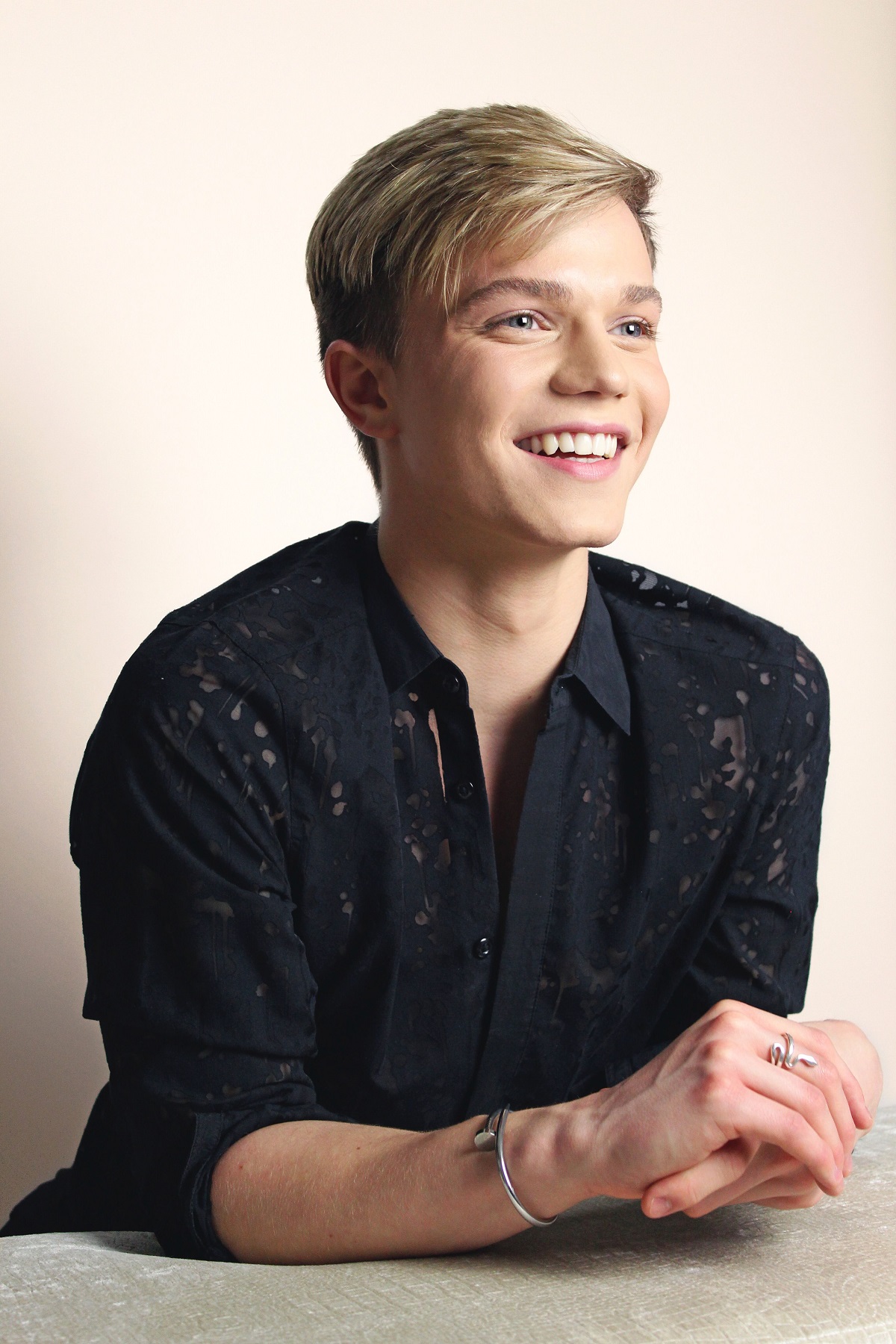
Was there much opportunity to explore your sexuality or date growing up in Norfolk?
Yeah there definitely was, it just wasn’t with out people. That wasn’t so much an issue, but I’ve never really been into relationships and dating, I’m still not. I can’t really be arsed with it! [laughs] I wanna have fun, I wanna meet new people. I’m still 20, I don’t want to settle down.
Have you ever been in a more serious relationship?
Not really. Maybe like dating things, but not proper relationships. I think it would take a very strong man to put up with me [laughs]. It isn’t something I’m interested in right now. If I meet someone and we get on that’s one thing, but it’s not a priority.
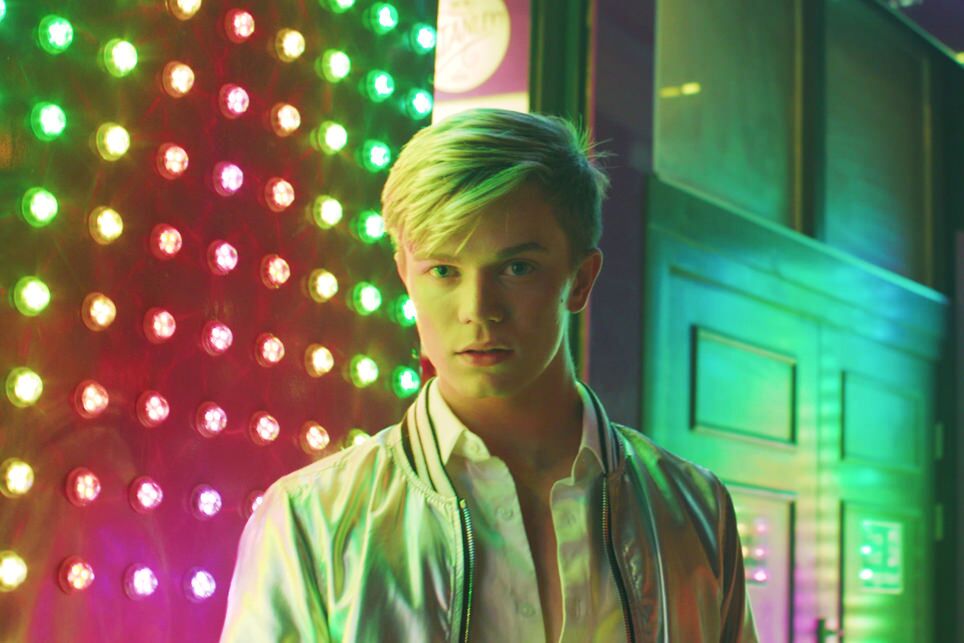
Having experience fame at a young age, were you wary of sharing details about your personal life?
I was definitely wary of that. People used to tear me apart. But I’ve experience it and gotten over it, and now I’m at a stage where I can sit back and say ‘I do not care’. I’m ready to have these open conversations now. Whatever people say about me, it doesn’t affect me anymore.
After contending with all this pressure over your identity, was it difficult returning to ‘normal’ life after experiencing the highs of being on the show and recording an album?
It was difficult because I felt like I wasn’t good enough. I didn’t sing for a year, even around the house. I just wasn’t singing. I’d lost faith in people, in the industry. I was angry for a while. I thought it was all my fault and I just didn’t believe in myself. When I got to 16 and people were finishing school and going ‘I’m going to college, I’m doing this’, I thought ‘I’ve experienced stuff that I know is me, I don’t want to do something I don’t care about’. I knew how much I loved it and was passionate about it. That’s when I was like ‘Actually, I can give this a go again’. I moved to London at around 18, thinking that was the place where it all happens.
You made your comeback at the end of last year with the release of ‘No Love (Like First Love)’ and your album Found My Way, and you were very clear about using gender-neutral pronouns in your lyrics– was that important to you from the offset?
The songs were being sent and they’d have ‘he’ or ‘she’ [in them], and I thought ‘No, actually I don’t want gendered pronouns’. Because I listen to music and sometimes I can’t connect because they’re used. I’m not saying I’ll never use gendered pronouns but for this album I just didn’t want it, because I wanted everyone to be able to engage with it.
You’re 20 now: How would you describe your musical vibe?
I try to include an element of soul in everything that I do. It’s what I love to sing, love listening to. The album is a pop album, it has dance hits on there, emotional ballads, because I like a mixture of music and I don’t ever want to do the same thing. There’s a song on the album for everyone. One thing I’ve learnt is ‘don’t have any expectations’. But the reaction was great. It’s kind of like starting again, but this time being able to do what I want to do with songs that I really love and am proud of. The reaction was just the cherry on top.
Who are the artists who’ve inspired you?
Well I grew up listening to Stevie Wonder, Etta James, Whitney Houston, and now… Lady Gaga is always the person I go to. She’s so creative, explores different genres, she’s a chameleon of music. I’ve seen her live so many times! She’s my main idol, and I think she inspires so many people. She inspires me as a person and an artist.
Now that you’re spoken about your sexuality publicly for the first time, what do you hope the outcome will be for you personally going forwards?
I feel like for me personally, it’s just nice to confirm it. It’s relaxing to know that I’ve spoken about it, don’t have to worry about it, and I can be more myself and authentic. I’ve got lots of young people who support me, and I hope that if there’s a young gay guy or girl out there who feels like they’re not good enough because of their sexuality or are struggling to come out or talk about it, to know that you should never feel ashamed of it. I know I needed that, I needed to see somebody. Just be proud. Times are changing. Everyone deserves to be happy.
Found My Way by Ronan Parke is out now.
